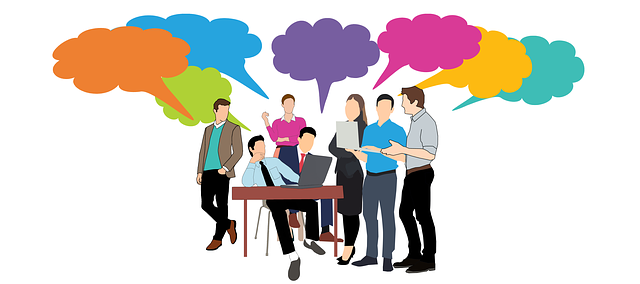The excessive use of gadgets and the increased knowledge due to it makes us more sensitive today. We are always concerned about our image in society and on social media.
And, when we are concerned, it is imperative to inculcate sensitivity in the way we behave and communicate in large groups, at our office, in our neighborhood, or on social media. And as humans, we are affected by what others do and how they react.
Social Dynamics & Communication Skills
Social dynamics and communication skills are two important aspects in this rapidly changing environment. Social mobility refers to the behavior of individuals or groups that is a result of our interactions with other people, group members.
Since communication is a process that allows us to exchange our views, opinions and ideas with each other, it should be considered as an important component that influences social mobility.
Clear Speaking
The ability to be clear when speaking, choose your words carefully, adjust your voice, be responsive, and keep your audience in mind will greatly affect your communications both personally and professionally.
The ability to articulate your thoughts clearly is extremely important because it is the main way you will communicate your thoughts and ideas in social settings. If you want to leave an impression on the other person, then your words should have confidence.
Social Dynamics of a Community
To keep the social dynamics of a community or society in general, you need to be a good communicator.
Communication Skills
Communication is an inevitable part of life, both in formal and informal settings – in the workplace or at home. Social dynamics gather the ideas from people who want to introduce their points of discussion, or influence changes, and successfully communicating your thoughts to others has the ability to influence their behavior.
Here’s what you can do to improve your communication that can create a positive impact on the social dynamic around you:
Be Respectful
When communicating with others, be aware of their time and space. Thank them for their time, keep presentations within their designated deadlines, and deliver written communications, such as emails, during appropriate hours.
Listen Well
To be a good communicator, you must first listen well. By paying attention, you get every important detail of communication, and you also improve how to communicate well.
Respective feedback
As you work to improve your communication skills, ask for feedback from your colleagues about areas you can develop further. Try incorporating their feedback into your next chat, brainstorming session, or video conference.
Be to the Point
Try to keep your communication brief. This applies to both written and oral communication. For written communication, proofread and oral communication, practice saying only what is important to the conversation.
Take Notes
When you are being communicated with, take down important points in the communication. This is a very simple yet effective way to ensure that there is no miscommunication.
Body Language.
Body language comes up in a wide variety of scenarios. When you’re listening, try to avoid leaning in, nod to show you’re listening to the person, and be mindful of your facial expressions.
Speak Directly
Communicate directly with the person you mean to. In many organizations, communication channels are created with many redundant people relaying messages. As we know thanks to the Chinese Whispers game, it doesn’t work when there are too many people. Simply communicate directly with the person you mean to.
Conclusion
The importance of good communication skills and social dynamics cannot be over emphasized. It is both a person’s happiness and success as an adult. Good communication skills can help you ace an interview and land your first job in your new career. All you know and may be able to describe, whether spoken or in writing, goes a long way in the application process.

